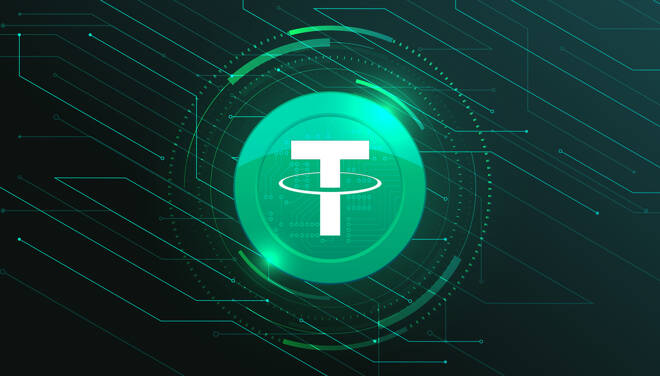Advertisement
Advertisement
Fitch Ratings Sounds the Alarm on Stablecoins Such as Tether
By:
It's not the first time that Fitch analysts have lost sleep about stablecoins.
On a day when the cryptocurrency industry has a lot to celebrate, with the bitcoin price hovering above $60,000 and an ETF on the way, one ratings agency is worried about stablecoins. Fitch Ratings has published a report saying that stablecoins pose a risk to the securities markets.
The firm, which has sounded the alarm on stablecoins before, warns that as stablecoins become “systemically important,” they could pose new risks to the “short-term securities markets,” including commercial paper (CP). The extent to which stablecoins could affect these markets depends on the way regulatory oversight plays out, particularly in the U.S. and the EU, according to Fitch.
Reserves in the Spotlight
The company, which alongside Moody’s and S&P is one of a trio of major U.S. ratings agencies, points to the reserves that stablecoin projects must hold. These reserves serve as a form of collateral for each and every token that has been issued. Fitch uses Tether, which is pegged 1:1 to the U.S. dollar, as an example, saying that it “held 49% of its reserves in certificates of deposit and CP as of end-June 2021.”
Incidentally, Tether recently agreed to pay $41 million in a settlement with the U.S. CFTC for “misleading” investors about the size of its reserves. VanEck director Gabor Gurbacs pointed out that “banks only have a capitalization ratio of 17% on average against cash deposited.”
Per Basel III and the BIS, the Total Capitalization Ratio for banks is approx. 17.0% with Tier 1 Capital of ~13.0%. Some people incorrectly believe that their bank deposits are 100% backed with fiat currency and actual money. Source: BIS, Basel Committee of Banking Supervision pic.twitter.com/95rwZYUEv5
— Gabor Gurbacs (@gaborgurbacs) October 15, 2021
Facebook’s Diem digital currency, which has yet to see the light of day, will be backed by a combination of government securities and cash. Given these reserves, Diem will fit the bill as a stablecoin.
Market Turbulence
Tether, the largest stablecoin with a market cap of $69 billion, has seen its market value balloon by 245% year-to-date. According to Fitch, this means that stablecoins could become larger participants in the CP market. Fitch analysts warn,
“Stablecoins could be disruptive for CP markets; for example, owing to run risks. Stablecoin-related turbulence could both affect the CP market itself and transmit shocks to other market participants.”
These market dynamics between stablecoins and traditional financial markets could be exacerbated “during periods of market stress or volatility,” according to Fitch.
Fitch and Stablecoins
Stablecoins are viewed as the biggest competition for the up-and-coming central bank digital currencies (CBDCs) given their tie to fiat money. Meanwhile, it’s not the first time that Fitch has sounded the alarm on stablecoins. In July, the ratings agency warned that stablecoins have the potential to disrupt the credit markets in the short term.
About the Author
Gerelyn Terzoauthor
Gerelyn is a cryptocurrency and blockchain journalist who has been engaged in the space since mid-2017 when bitcoin was embarking on its first major bull run
Advertisement
